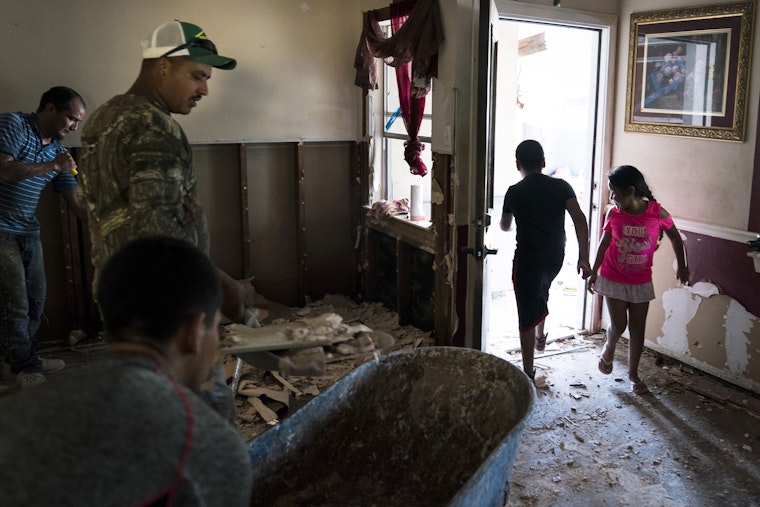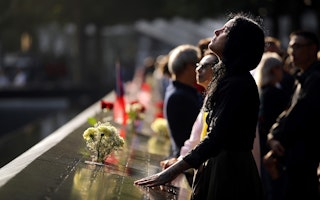After the Storm: Building a Better Houston
By John Henneberger

Housing and public infrastructure provide people an essential platform for building their lives. It’s tough to accumulate wealth, get a good education, or hold a job if you don’t have a decent place to live in a safe community. Yet inequality seems locked in place by decades of racial discrimination and segregation and the failure of government to provide sufficient funds to help people overcome historic inequality.
Natural disasters present a rare moment when significant government resources are available. How we choose to use those resources and how we decide who gets them presents a clear choice: to simply rebuild the structures of inequality or to build homes and neighborhoods that offer their residents a path to opportunity.
Over the past several years, Texans have experienced four major hurricanes and several smaller-scale disasters. At Texas Housers, which works with community groups of low-income people to advocate for fair and affordable housing, we have had the opportunity to witness both good and bad rebuilding outcomes. It’s with that experience—and with a sense of both fear and opportunity—that we approach the work of recovering from Hurricane Harvey.
Houston, one of the cities hardest hit by the storm, is an instructive test case. The fourth largest city in the United States, Houston is one of the most racially and ethnically diverse places in the country. Yet it also among the most economically segregated American cities at the neighborhood level.
As the Supreme Court observed in its historic Brown v. Board of Education decision on school segregation, when it comes to race, separate is not equal. The racial segregation and economic inequalities dividing more privileged, mostly white neighborhoods and low-income neighborhoods of color in Houston today must be addressed if we are to ever achieve equality of opportunity—and an equitable recovery.
Making progress requires the public to understand that segregation produces unequal opportunities. This understanding must be built through research, education, and dialogue, acknowledging that residential segregation is a deliberate governmental construct that will take deliberate governmental action to undo. These actions will require government to account not only for where the floodwaters went but also to examine the underlying causes, such as the lack of infrastructure to handle even minor flooding in Houston’s historic neighborhoods of color.
Segregation must be addressed up front. Otherwise, the extreme racial, ethnic, and economic inequities that exist in Houston will frustrate efforts to improve affordable housing and neighborhood conditions.
We must find a way to provide a significant investment of public resources to build desegregated affordable housing and to close the infrastructure deficit across neighborhoods. In the wake of a disaster, billions of federal dollars in community development funds for recovery are disbursed to the state, which decides how to use these funds. The unprecedented Hurricane Harvey rebuilding funds offer a unique opportunity to make a major down payment on equity.
Ultimately, we have to find a way to build the political will to address inequality of opportunity. In Texas, this is something Texas Housers and our partners at the Texas Organizing Project have been working on for several years.
The Texas Organizing Project’s grassroots community leaders have framed creating equity of opportunity as a matter of securing government and community agreement on what the group refers to as the “four rights.” These rights are required to achieve fair housing and equalize government infrastructure across upper- and lower-income neighborhoods. They are: the right to choose where to live, the right to stay in and not be involuntarily displaced from your home, the right to equal treatment of your person and your neighborhood by the government, and the right to have a say in the governmental decisions that impact you.
These rights should guide the everyday relationship between citizens and government. They should especially guide disaster recovery. The way we rebuild following a disaster should make things more fair.
This means using the unprecedented public investment to secure for low- and moderate-income communities of color levels of service from public infrastructure equal to those of their wealthier neighbors. It also means creating quality affordable housing choices for low-income families of color, unrestricted by the historical burdens of Jim Crow residential segregation.
The goal should be for everyone to recover quickly and completely. To be fair, we must acknowledge that some households and neighborhoods are starting their recovery from far behind the starting line of others. This is a legacy of decades of government disinvestment in communities of color and residential racial segregation.
Disaster recovery can remedy this by guaranteeing the four rights. Recovery will only truly happen when every neighborhood is afforded equal stormwater protection and other public infrastructure, and every survivor has a right to choose freely where to live.
Texas Housers is a grantee of the Open Society Foundations.
John Henneberger is codirector of Texas Housers.


